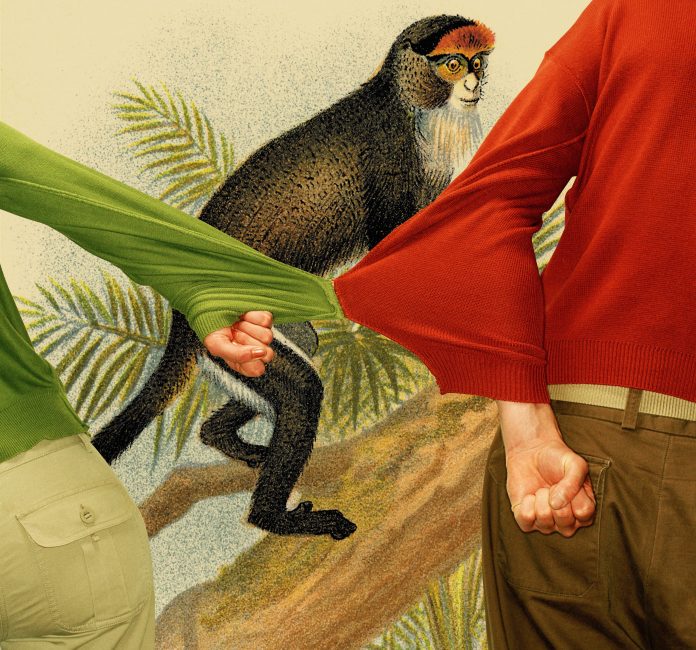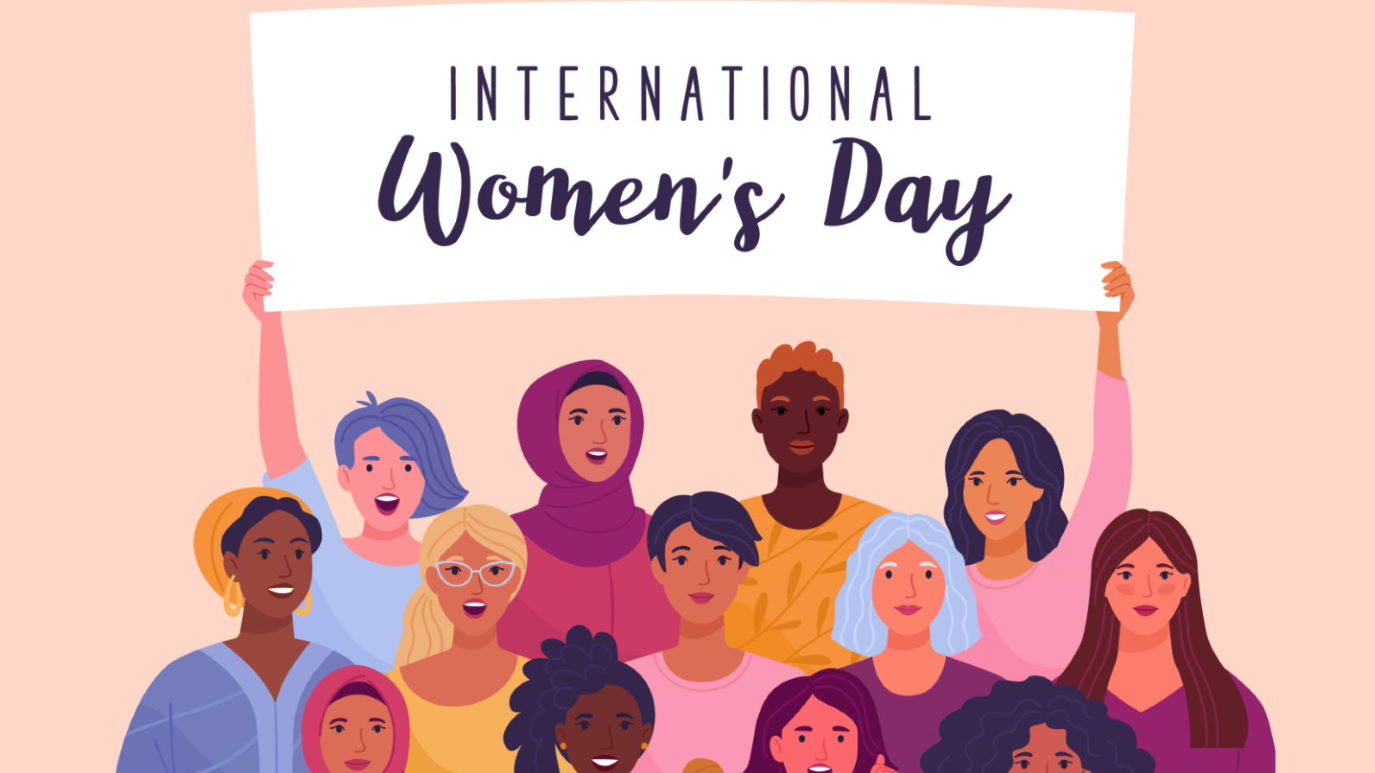You know that friend who’s literally always in a relationship—and not the same long-term relationship, but a new one seemingly every time you catch up with them? It may seem like the numbers simply don’t add up, like there couldn’t possibly have been enough time between their last breakup and their current ’ship to have met and cuffed a new partner already. Spoiler alert: that brand new relationship probably isn’t as new as they’d like you to believe. Odds are, it was already in the works before their last one came to an end. Well, turns out there’s a name for this less than flattering behavior: “monkey-barring,” also called “monkey-branching.”
“Monkey-barring is when someone can’t let go of one relationship before grabbing onto the next,” explains Sabrina Bendory, relationship expert at Dating.com. “Think of it like dangling between two monkey bars—you’re still gripping one hand on your current partner while already reaching out for someone new.”
Like the behavior itself, the term “monkey-barring” isn’t new, dating back at least as far as a decade-old Reddit post. Clearly, however, this bad dating habit is still alive and well, and the term has recently begun making the rounds online. So here’s what to know about monkey-barring, why it’s so toxic, and what to do if you suspect you’ve been guilty of pulling this kind of monkey business yourself.
What Is Monkey-Barring?
“Monkey-barring is a toxic dating behavior where someone maintains their current relationship while actively seeking out and forming a love connection with someone new, with the intention of leaving their current partner for this new person,” explains relationship coach Amie Leadingham. “Just like swinging on monkey bars, they don’t let go of one relationship until they have a firm grip on the next one. They’re essentially shopping for their partner’s replacement while keeping them in the dark about it.”
If that sounds a lot like cheating, I’d say that’s because most people—especially those whose former partners have monkey-barred out of their relationship—would agree that it is. And while what technically “counts as” cheating is subjective, there’s no denying this is inherently deceitful behavior. So why do people do it?
Obviously, the specific reasons depend to some degree on the individuals and circumstances involved, but in general, monkey-barring comes down to a fear of being alone.
“Some people monkey-bar because they struggle with codependency and use new relationships as emotional safety nets rather than dealing with the discomfort of being alone,” says Leadingham. “They become addicted to the external validation and distraction that relationships provide, relying on someone else’s attention and affection to feel stable and worthy instead of developing their own emotional regulation skills.”
There may also be an element of avoidance and lack of communication skills involved, Leadingham adds, noting that those who fear difficult conversations may see monkey-barring as “an easier escape route than having an honest breakup conversation.”
In short, “People monkey-bar out of fear—fear of being alone, fear of rejection, fear of the unknown,” says Bendory. “Even if their current relationship isn’t great, they’ll cling to it until there’s a guaranteed ‘next choice.’ It feels safer than facing the free fall of a breakup.”
And while there’s obviously no excusing this behavior—it is 100 percent not a good look—I would add that we live in a society that encourages people, especially women, to fear being single and avoid it at all costs. So while monkey-barrers are responsible for their own actions, I think it’s worth acknowledging the ways in which societal pressure to be in a relationship breeds this kind of behavior.
Why Is Monkey-Barring So Toxic?
“Monkey-barring is toxic because deception is at its core,” says Leadingham. “The current partner is actively being lied to about the state of their relationship while believing their partner is fully committed to them. They unknowingly are emotionally investing in something that’s already over in the other person’s mind, which is deeply hurtful and manipulative.”
And while the current/soon-to-be-ex partner is clearly the most-wronged party in this situation, monkey-barring can be just as unfair to the new partner—assuming they’re also being kept in the dark. “While the new love interest is being used as a backup plan without their knowledge, they think they’re building something genuine with someone who’s available, but they’re actually participating in someone’s elaborate cheating scheme,” says Leadingham.
Basically, monkey-barring harms everyone involved. “The current partner deserves honesty about where the relationship stands, and the new person deserves to know they’re dating someone who’s already taken,” says Leadingham. “The person who is monkey-barring is also robbing themselves of the opportunity to end things with integrity.”
How Can You Stop Monkey-Barring From Relationship to Relationship?
If there’s any good news to be had here, it’s that if you yourself are guilty of monkey-barring, being aware of it is the first step. “If you can recognize monkey-barring in yourself, you can stop it,” says Bendory. If you’re a chronic monkey-barrer, here are four expert tips to break the habit and start forging healthier relationship patterns.
1. Understand Why You Do This
“First, you need to get brutally honest about why you’re doing this,” says Leadingham. “Is it fear of being alone? Codependency issues? Lack of communication skills? Whatever the deep-rooted issue is, accountability is the first step to creating real change.”
2. Learn to Be Single
Again, we live in a society that encourages us to partner up and fear being alone. For many people, being okay with being single is a learned skill. But trust me, it’s one well worth learning. “When you know you’re fine on your own, you don’t need a backup plan,” says Bendory.
And the only way to learn how to be single is to commit to being single, “which means being truly single, not just ‘not in a relationship’ while still talking to multiple people or keeping your options open,” says Leadingham. “Learn to sit with discomfort without immediately seeking someone to fix it.” And yes, that includes resisting the urge to download a dating app or text an old flame for a quick hit of external validation. (Sorry.)
3. Work on Your Communication Skills
Especially when it comes to difficult conversations. “Practice ending a relationship directly and honestly when you’re no longer feeling it, rather than letting them fade while you explore other options,” says Leadingham. “This means having uncomfortable conversations about where you stand instead of taking the easy way out.”
4. Do the Inner Work
“Work on building genuine self-worth that doesn’t depend on romantic validation,” says Leadingham. “Consider working with a professional to understand why you need constant relationship security and develop healthier patterns before dating again.”
Whether you do that work on your own or with a therapist, Bendory agrees that getting to the root of your insecurities around relationships is key. “When you face those fears, you break the pattern,” she says. ”That’s what allows you to build real self-worth—and from there, genuine relationships grounded in truth, not fear.”







